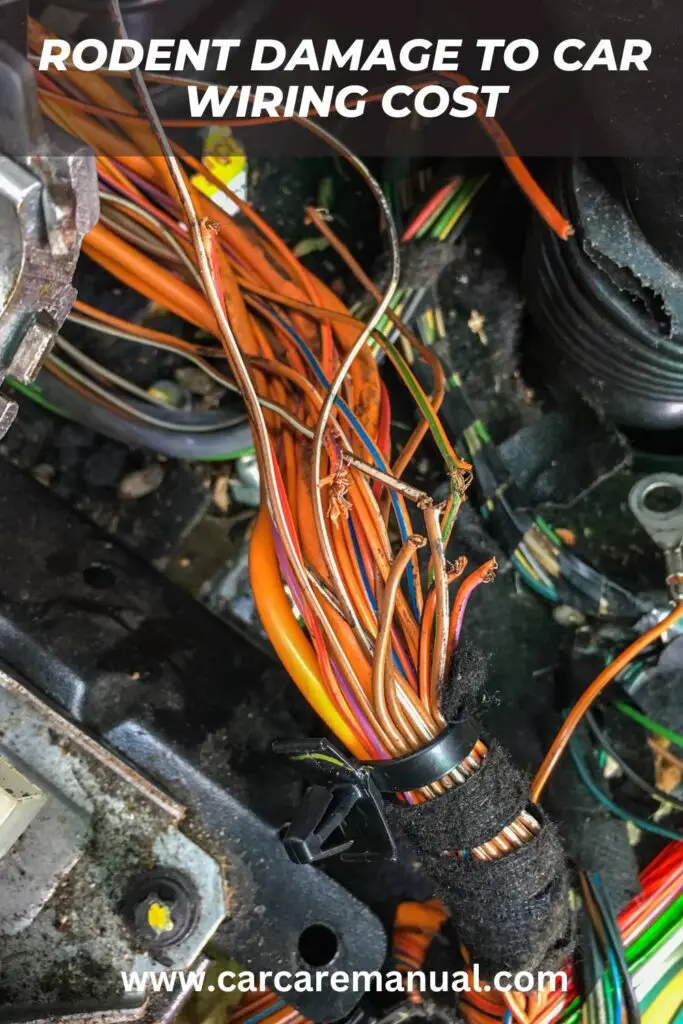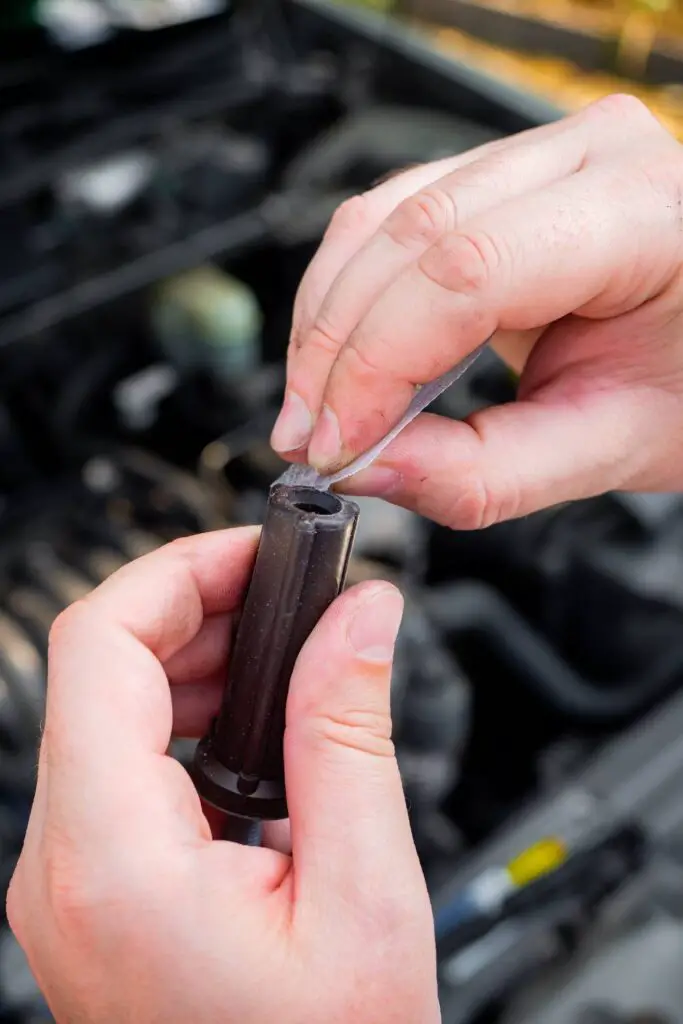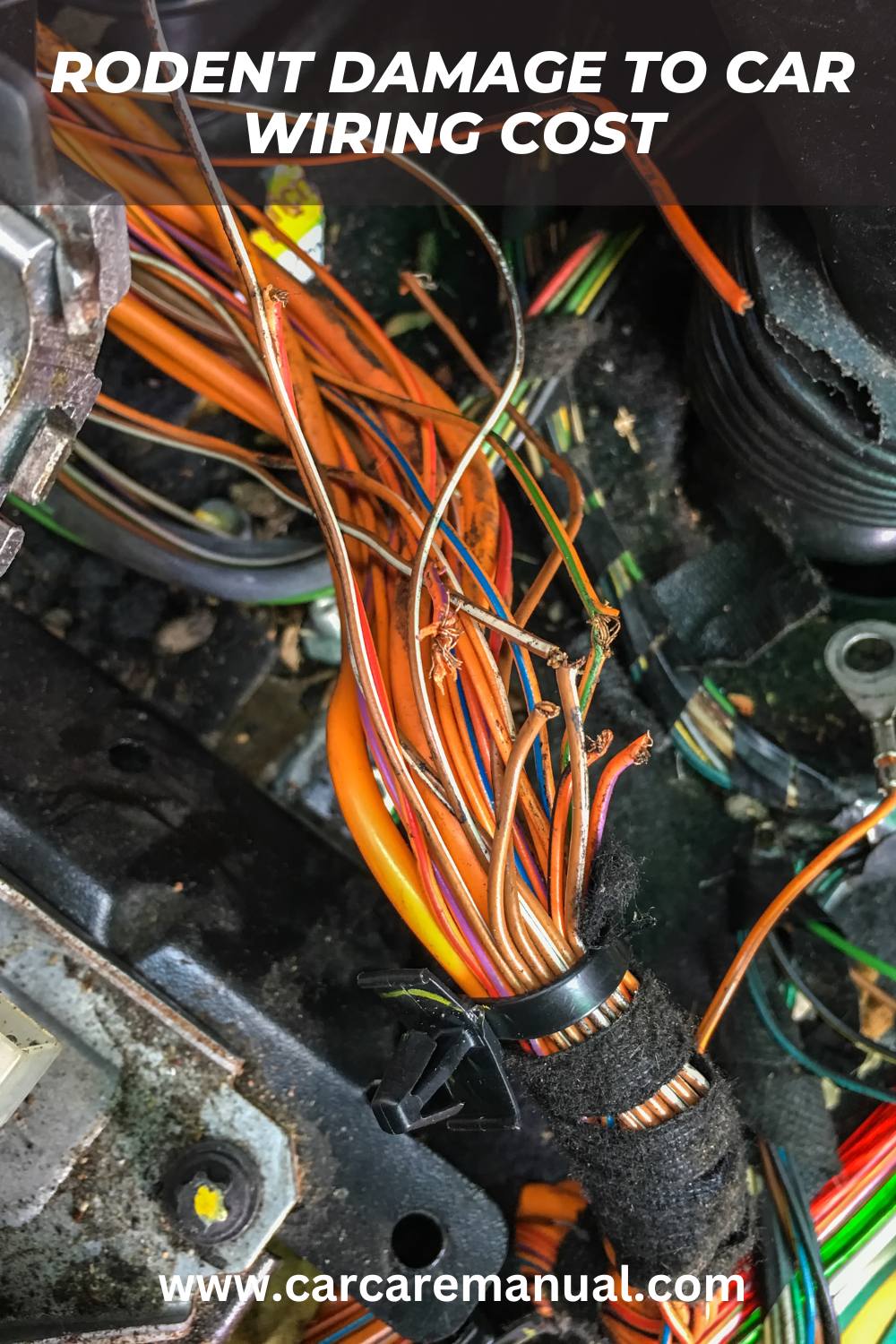Last Updated on August 31, 2023 by Henry T. Hawkins
Rodents are one of the most annoying pests which can be found in many homes and commercial premises. But what many people don’t know is that they can cause severe damage to car wiring too. Rodent damage to car wiring cost can be quite expensive and can cause problems for your car in the future.
In this blog post, we will discuss the rodent damage to car wiring cost and what you can do to prevent it.

How Rodent can damage your car wiring?
The first thing you should know is that rodents can cause significant damage to car wiring. Rats, mice, and other rodents have sharp teeth that can easily chew through car wiring.
This can lead to electrical shorts, broken wires, and other problems. Furthermore, the rodents can also introduce moisture and contaminants into the wiring, which can cause corrosion and other damage over time.
What is the cost of rodent damage to car wiring?
The cost of repairing rodent damage to car wiring can vary greatly depending on the extent of the damage and the make and model of the car. According to many car experts, the repair costs could range from as low as $75 to as high as $12,000.
For instance, there are cases where a rodent chewed through a wire harness, causing a repair cost of approximately $7,000. On average, the price to fix such damage usually ranges from $300 to $10,000.
However, sometimes the repair estimates can reach up to $12,000. As per KSHB 41 News, repairing car wiring after rodent damage can cost between $700 and $2,000. Keep in mind that these repairs often require a substantial amount of labor as the mechanic may need to disassemble the car to fix the damaged wires.
In addition to the cost of repairs, you should also consider the cost of preventative measures. Taking steps to prevent rodents from entering your car is the best way to avoid costly repairs.
For instance, you can install rodent repellent devices or use traps to catch the rodents before they can cause any damage. These measures can be quite effective, and their cost is much lower than the cost of repairs.
Will Insurance Cover Rodent Damage to my car wiring?
Whether insurance will cover rodent damage to your car wiring depends on the type of insurance policy you have. Comprehensive insurance usually covers such damages. This type of insurance is designed to cover damages not caused by a collision, which includes damages caused by animals.
However, it’s important to note that not all insurance policies are the same, and coverage can vary based on the provider and specific policy details. Therefore, it’s always a good idea to check with your insurance provider to understand what’s covered under your policy.
Additionally, some insurance companies may view rodents chewing through your wires as an “act of God,” which is typically covered under comprehensive insurance. But again, each case can be different, and it’s best to consult with your insurance company for clarification.
If your car insurance does cover rodent damage, keep in mind that you’ll likely still need to pay a deductible before your insurance kicks in.
Preventive measures can also help reduce the risk of rodent damage, such as parking indoors when possible, regularly checking your vehicle for signs of rodent activity, and using rodent repellents.
How to prevent Rodent damage to car wiring?
We spoke to Tim Miller, an Automotive Mechanic, about the issue. He said you should always inspect your car for signs of rodent activity. He emphasizes that checking your car for gnawed wires, droppings, and other signs of rodent activity can help you detect a problem before it becomes too serious.

Now that you know the cost of rodent damage to car wiring, let’s discuss a few tips that can help you prevent it.
1. Use Rodent Deterrent Tape:
Many auto parts stores sell special tape that is infused with capsaicin, the compound that makes chili peppers hot. The smell and taste of capsaicin are unbearable to rodents, so they are likely to steer clear of anything covered in this tape. You can wrap it around your wires to protect them.
2. Install a Rodent Deterrent Device:
Some companies make devices that emit a high-frequency sound designed to deter rodents. These devices can be installed under the hood of your car and can be effective at keeping rodents away.
Miller believes that these devices can help to keep rodents away from your car and can save you time and money in the long run.
3. Keep the Area Clean:
Rodents are attracted to areas with available food sources. Keep your car and the area around it clean to avoid attracting rodents. Don’t leave food in your car, and if you park in a garage or carport, keep it tidy and free of food items.
4. Use Natural Repellents:
Miller suggests that you use natural deterrents such as peppermint oil, garlic, and cayenne pepper to repel rodents. He emphasizes that these natural ingredients are safe for both humans and animals and can be used to create an effective barrier around your car.
“You can soak cotton balls in peppermint oil and place them in areas where rodents might enter your car, he added.”
5. Regularly Inspect Your Vehicle:
Regular inspections can help identify any signs of rodent activity early, before they cause significant damage. Look for droppings, chewed wires, or nests under the hood.
6. Park Indoors When Possible:
If you can, park your vehicle indoors, as this can help deter rodents. They are less likely to enter a vehicle that is parked in a well-lit and frequently used area.
Store your car in a rodent-proof garage or shed. Rodents are more likely to enter a car that is parked outside or in an exposed area, so having a secure shelter for your car can help prevent rodent damage, explained Miller.
7. Use Rodent Traps:
If you know there are rodents in your area, consider setting up traps around your vehicle. Be sure to check and empty the traps regularly.
Remember, prevention is always better than repair. Taking these steps can save you from costly repairs down the line.
Frequently Asked Questions
Some reports suggest that rodents may be more attracted to cars with soy-based wiring, as the material can be more appealing to chew on. However, any vehicle can become a target regardless of its make or model. It largely depends on where you park your car and if there is an existing rodent problem in the area.
Yes, if rodents chew through important wires, it could lead to a variety of issues such as problems starting the car, issues with the lights, or even malfunctions with safety features like airbags. In severe cases, it could even cause a fire.
Rodents can cause significant damage very quickly. In some cases, they can chew through important wires in a matter of hours. If a car is left stationary for an extended period, the damage could be even more extensive.
The most common culprits are rats and mice. However, other animals such as squirrels or chipmunks can also cause this type of damage.
Not always. While some damage may trigger a warning light, other damage may not. It’s always best to have your vehicle inspected if you suspect rodent activity.
Signs of rodent damage can include visible gnaw marks on wires, nests made of shredded material, droppings, or even the smell of urine. If you see or smell anything unusual, it’s worth having your vehicle checked.
Yes, a skilled mechanic should be able to repair or replace damaged wires. However, the cost and time required for this process can vary depending on the extent of the damage.
Wrapping Up
Thanks for reading this guide on rodent damage to car wiring cost. We hope you’ve found this guide helpful and informative.
To wrap things up we want to mention again that the cost to repair rodent damage to car wiring can vary greatly. It can range from as low as $75 to as high as $12,000.
On average, the price to fix rodent damage to your car typically falls between $300 and $10,000. In certain cases, depending on the type of wires damaged, these repairs can cost anywhere between $700 to around $2,000. Some car owners have reportedly paid upwards of $8,000 for repairs.
The variability in cost largely depends on the extent of the damage, the specific components affected, labor rates at the repair shop and the brand of your car. If you have comprehensive car insurance coverage, your policy may cover the cost of repairs, subject to your deductible.


